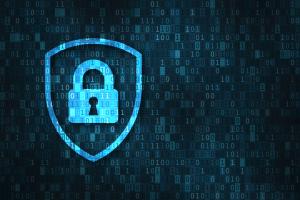
Artificial Intelligence (AI) is revolutionizing the world by providing force in innovation and efficiency. All the sectors like finance, healthcare, automobile, entertainment are significantly impacted in terms of operations and innovations. Among these sectors, one common factor is cybersecurity which stands out and is imperative in all the sectors and businesses.
The integration of AI technologies is reshaping the way cybersecurity is managed. Security protocols and defense mechanism are going automated with the help of AI. AI has the ability to predict, detect and respond to cyber threats proactively with speed and accuracy.
For instance, with its ability to analyze vast amounts of data within seconds, AI can accurately identify potential threats and proactively respond to those threats with its reactive strategies. AI’s role in automating the routine tasks frees up valuable human resources to focus on more complex security challenges and hence optimizing overall operations of business.
Further, AI technologies is used in developing advanced security solutions like Static Application Security Testing (SAST), which efficiently detects vulnerabilities in the software applications before they are vulnerable to exploitation. This integration has resulted in creating a robust, dynamic and adaptive security posture.
As we dive deep in the role of AI in cybersecurity, it is clear that AI is not just a tool but a fundamental component in modern defense strategies from cyber attacks. Let’s explore how AI is transforming cybersecurity practices and what are the advantages that it brings in the industries.
AI-Driven Threat Detection and Response
One of the most important and significant contributions made by AI in cybersecurity is its ability to detect threats and respond to them in real time. AI systems are designed to continuously learn and implement changes based on patterns and anomalies. This is imperative in fighting against the sophisticated cyber threats.
Machine learning algorithms can sift through huge volumes of data at an incredible speed. It can detect threats and deviations from normal behavior of the network. This analysis is done in real-time and helps the organizations to react on the threats in a swift way. AI-driven systems can predict the future attack by analyzing trends in historical data and it can act as an added layer of defense.
Automating Security Tasks
AI has been also found instrumental in automating complex and repetitive security task that constantly require human intervention. For instance, patch management involves regular software updates and vulnerability fixes which can be automated using AI. This not only ensures that our software are updated but also reduces the window for attackers to exploit the known flaws.
In a similar way, AI can automate the process of log management and analysis which is again a crucial task in cybersecurity procedure. AI algorithms can automatically parse through logs and highlight the pressing areas of concern. It can also help in prioritizing the tasks based on their severity level. This can again help in enhancing overall security efficiency.
Enhanced Incident Response
The incident response mechanism can also be enhanced using AI as it can immediately contain and mitigate the potential breaches. AI systems can automatically isolate the affected network and shut down breached systems. It can automatically deploy a security patch across the entire infrastructure as soon as a threat is detected.
Advantages of AI in Cybersecurity
The integration of AI into cybersecurity offers several key advantages:
- Speed and Efficiency: AI can process and analyze data much faster than human teams, which is essential for timely threat detection and response.
- Scalability: AI systems can easily scale up as network environments expand, making them ideal for growing organizations that need dynamic security solutions.
- Cost-effectiveness: By automating routine tasks, AI reduces the workload on human security teams, which can decrease operational costs and allow resources to be allocated to strategic initiatives.
- Accuracy and Precision: AI reduces the likelihood of human error and increases the accuracy of threat detection and response activities.
- Learning and Adaptation: AI systems improve over time, learning from new data and adapting to evolving cyber threats without requiring constant human oversight.
Further, the tools like Static Application Security Testing become even more effect when they are powered with AI technologies. They can identify potential weaknesses in security procedures more accurately much before they are exploited.
The integration of artificial intelligence in the world of cybersecurity has marked as a significant advancement in the battles against the cyber threats. As we have already seen how AI can transform security operations by conducting automated threat detection mechanism and how it can respond to these threats.
There are multiple benefits that an organization can achieve by AI in their cyber security procedures. Increased speed, accuracy and efficiency, response to sophisticated cyber threats, scalability of AI measures, these are some of the factors which AI can boost in its fight against the emerging cyber threats.
To conclude, cybersecurity landscape is evolving continuously and so it the role that AI is playing in its detection. Organization that are embracing AI-driven security tools, including Static Application Security Testing, are not only better equipped to handle current threats but are also preparing for future challenges.
This post was originally published on the 3rd party site mentioned in the title of this this site






